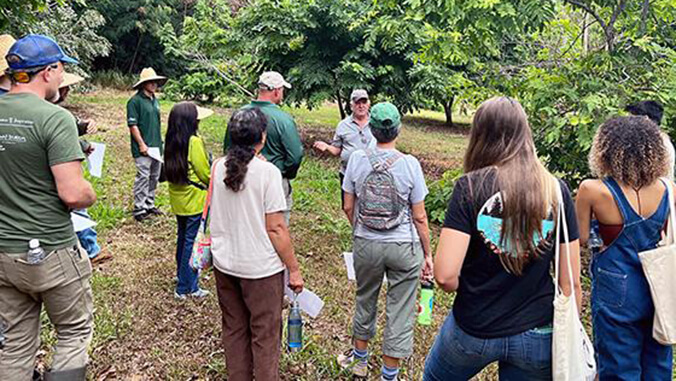
A field day introducing the landscape industry to new sterile selections of trees garnered an attendance of nearly 40 landscapers, farmers and residents in July. The event was hosted by University of Hawaiʻi at Mānoa College of Tropical Agriculture and Human Resources (CTAHR) Department of Tropical Plant and Soil Sciences’ Ken Leonhardt and Alberto Ricordi.
Held at the Waimānalo Research Station, the Sterile Landscape Tree Field Day showcased seedless selections of trees (African tulip, monkey pod, shower and octopus) and gall wasp-resistant selections of the tall wiliwili, a tree used as windbreak hedges that commonly takes damage from the pest. Because these trees are sterile, they have no potential to become invasive species. Furthermore, they do not produce seed pod or fruit litter, making them lower maintenance than seedy species.
“Landscapers can use these trees with no risk of introducing more non-native seeds into the environment,” said Leonhardt.
Due to the event’s popularity, it was repeated on August 21 for the staff of the Honolulu City and County Department of Parks and Recreation, Division of Urban Forestry, which plans to use the trees introduced by CTAHR in city parks as street trees.
“The inquiring public was treated to a very hands-on sharing of research and experiences by Ken and Alberto—the essence of what CTAHR stations and extension gardens are designed to do,” said Jari Sugano, CTAHR Oʻahu County Extension.
Propagation material of the windbreak wiliwili is still available. Interested growers may obtain the free propagation material by contacting Ricordi at albertoh@hawaii.edu.

